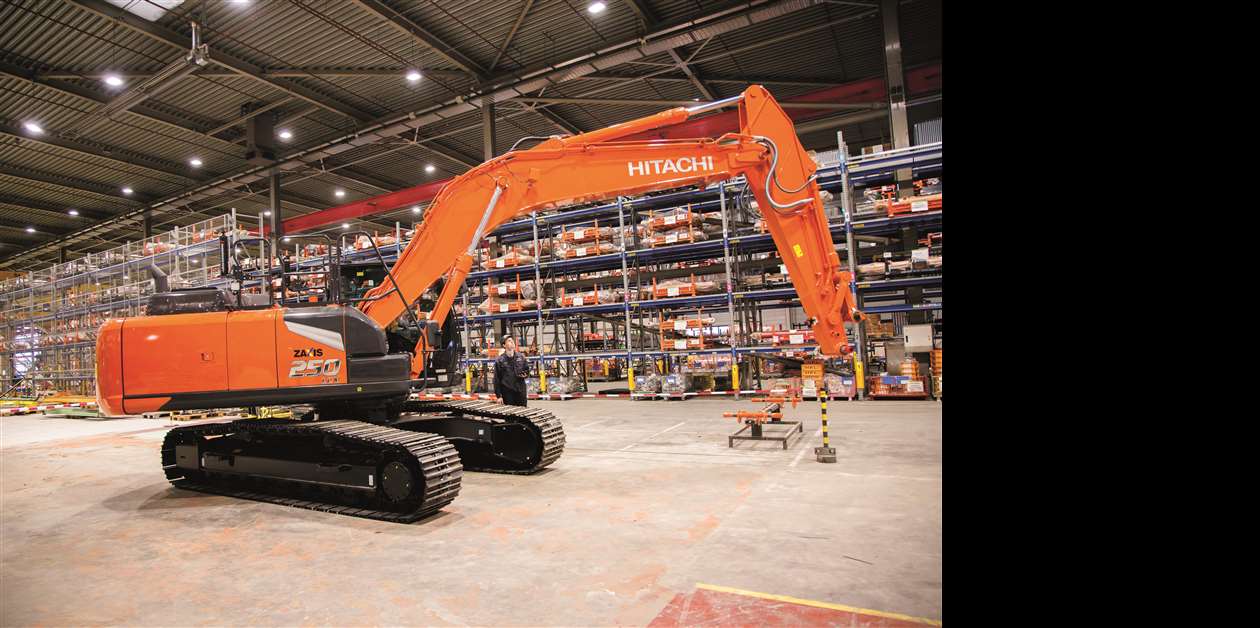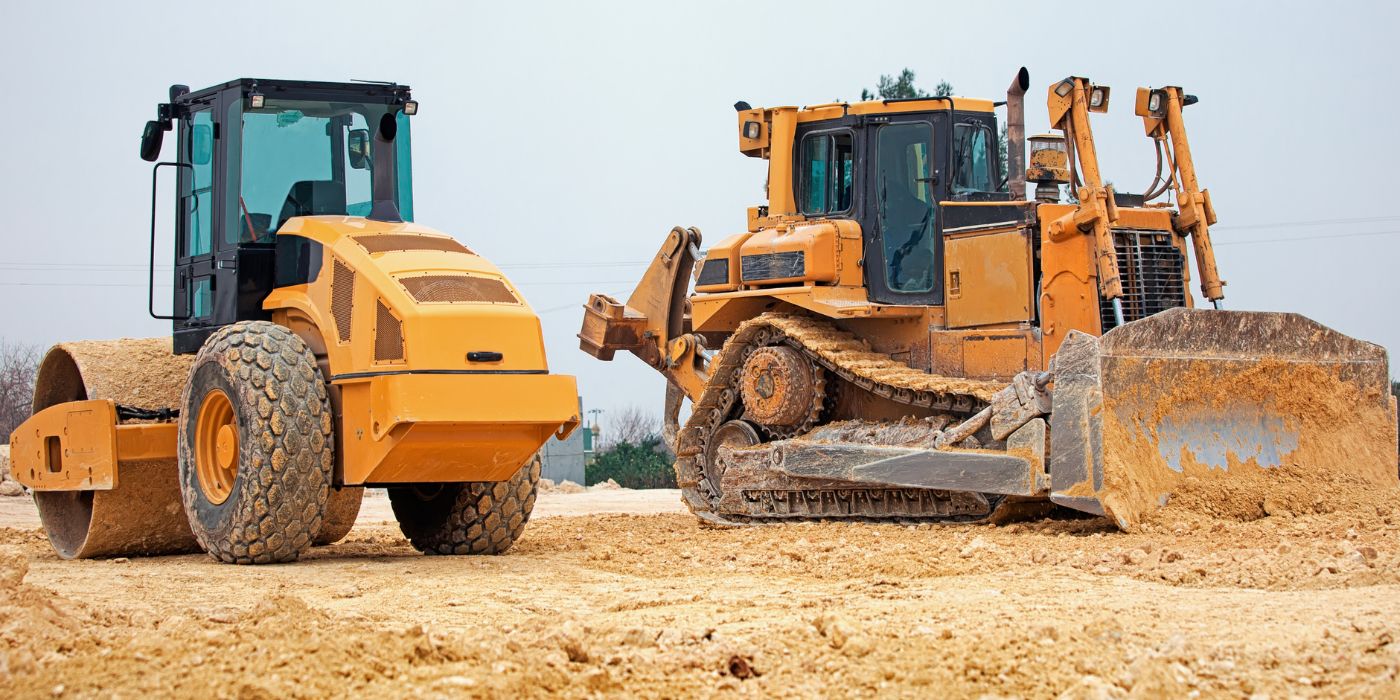Dozer Rental in Tuscaloosa AL: Reliable and Economical Heavy Machinery
Dozer Rental in Tuscaloosa AL: Reliable and Economical Heavy Machinery
Blog Article
Exploring the Financial Advantages of Leasing Building And Construction Devices Compared to Owning It Long-Term
The decision between renting out and possessing building and construction devices is critical for financial management in the sector. Renting out offers prompt price financial savings and operational adaptability, enabling companies to allocate resources extra successfully. Comprehending these nuances is vital, especially when taking into consideration how they align with specific task requirements and financial approaches.

Cost Comparison: Renting Out Vs. Possessing
When reviewing the economic ramifications of owning versus renting out building equipment, a comprehensive cost contrast is crucial for making educated decisions. The choice in between owning and renting out can dramatically influence a firm's bottom line, and understanding the linked expenses is important.
Renting building tools generally includes reduced upfront expenses, permitting companies to designate resources to other operational requirements. Rental prices can gather over time, potentially surpassing the cost of possession if tools is needed for a prolonged duration.
On the other hand, possessing building devices requires a significant initial investment, in addition to ongoing costs such as insurance policy, funding, and devaluation. While ownership can lead to long-term cost savings, it likewise locks up capital and might not give the very same degree of versatility as leasing. Furthermore, having devices demands a dedication to its use, which may not always line up with job demands.
Ultimately, the choice to own or rent needs to be based on an extensive analysis of details task requirements, financial capacity, and lasting calculated goals.

Maintenance Responsibilities and expenses
The choice between having and leasing building equipment not only entails economic considerations however additionally incorporates continuous maintenance expenses and duties. Possessing devices requires a significant commitment to its maintenance, that includes routine evaluations, repairs, and possible upgrades. These duties can rapidly accumulate, causing unexpected prices that can stress a budget plan.
In contrast, when renting out devices, maintenance is typically the duty of the rental business. This arrangement allows contractors to stay clear of the monetary concern connected with damage, in addition to the logistical challenges of organizing repair services. Rental contracts typically include stipulations for maintenance, suggesting that professionals can concentrate on completing tasks instead than fretting about equipment problem.
Furthermore, the varied variety of devices available for lease makes it possible for business to select the current designs with advanced innovation, which can boost effectiveness and performance - scissor lift rental in Tuscaloosa Al. By selecting services, services can avoid the long-term obligation of tools depreciation and the connected upkeep frustrations. Ultimately, examining upkeep expenses and obligations is vital for making an informed decision regarding whether to possess or rent out building tools, substantially influencing total task costs and operational efficiency

Depreciation Effect On Possession

A significant element to think about in the choice to possess construction equipment is the effect of devaluation on overall ownership expenses. Depreciation stands for the decrease in worth of the tools with time, click for info influenced by elements such as usage, wear and tear, and developments in innovation. As equipment ages, its market price reduces, which can dramatically influence the owner's financial position when it comes time to trade the devices or offer.
For building and construction business, this depreciation can translate to considerable losses if the equipment is not used to its greatest possibility or if it comes to be obsolete. Owners need to represent devaluation in their monetary projections, which can cause higher overall prices compared to renting. Furthermore, the tax implications of depreciation can be complex; while it might offer some tax obligation benefits, these are typically offset by the fact of decreased resale worth.
Eventually, the burden of devaluation stresses the significance of understanding the long-term financial commitment entailed in having construction devices. Firms should carefully assess how frequently they will make use of the devices and the prospective financial influence of depreciation to make an educated choice concerning ownership versus renting out.
Financial Versatility of Renting Out
Renting building tools offers significant monetary adaptability, allowing business to designate resources extra efficiently. This adaptability is especially crucial in an industry defined by rising and fall project demands and varying work. By deciding to lease, services can avoid the considerable funding expense needed for purchasing equipment, protecting capital for other operational requirements.
Furthermore, renting devices allows business to customize their devices options to details project requirements without the long-lasting commitment related to possession. This indicates that businesses can easily scale their equipment stock up or down based upon anticipated and current job requirements. As a result, this versatility decreases the danger of over-investment in equipment that might come to be underutilized or out-of-date with time.
Another monetary advantage of renting is the potential for tax obligation advantages. Rental repayments are usually thought about general expenses, enabling immediate tax obligation reductions, unlike devaluation on owned and operated equipment, which is topped numerous years. scissor lift rental in Tuscaloosa Al. This immediate expenditure recognition can further improve a firm's money position
Long-Term Task Considerations
When reviewing the lasting requirements of a construction company, the choice in between renting and owning equipment ends up being more complicated. For tasks with extended timelines, buying devices might appear advantageous due to the potential for visite site reduced total prices.
Additionally, technical innovations position a substantial factor to consider. The construction market is progressing swiftly, with brand-new tools offering boosted performance and safety and security features. Leasing enables business to access the most recent technology without devoting to the high ahead of time prices related to acquiring. This adaptability is particularly advantageous for companies that manage varied jobs needing various kinds of devices.
Additionally, economic stability plays an important duty. Having equipment often entails substantial capital expense and depreciation concerns, while renting out use this link permits more foreseeable budgeting and money circulation. Eventually, the choice in between having and renting out must be aligned with the critical objectives of the building and construction service, thinking about both existing and expected project needs.
Conclusion
In verdict, renting out construction equipment provides significant financial advantages over long-term ownership. Ultimately, the decision to lease instead than very own aligns with the vibrant nature of construction projects, allowing for versatility and accessibility to the latest equipment without the financial concerns connected with possession.
As tools ages, its market worth diminishes, which can substantially impact the proprietor's monetary setting when it comes time to market or trade the tools.
Renting out construction equipment provides substantial economic adaptability, permitting business to designate resources much more efficiently.In addition, renting out devices allows companies to tailor their equipment choices to specific task needs without the long-lasting commitment associated with possession.In final thought, renting construction tools provides substantial monetary advantages over lasting ownership. Ultimately, the choice to lease rather than own aligns with the vibrant nature of building and construction jobs, permitting for versatility and access to the most recent devices without the economic problems connected with ownership.
Report this page